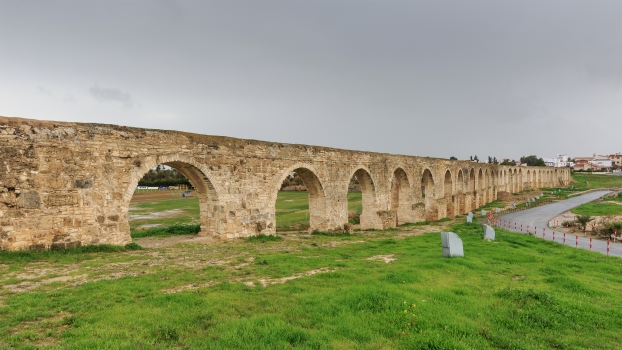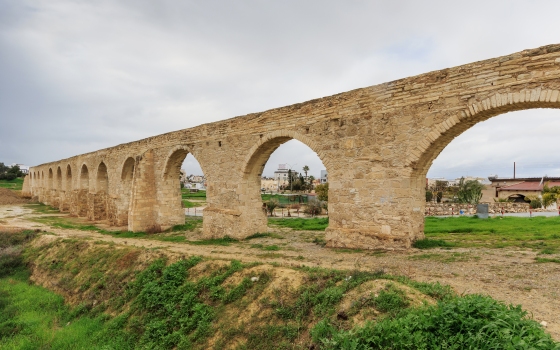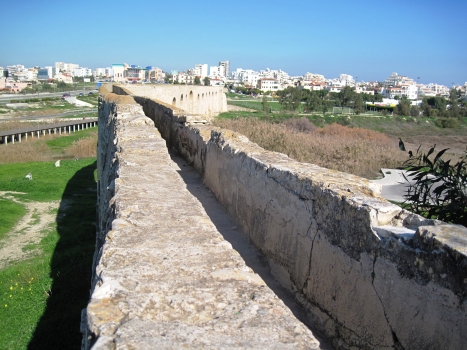General Information
| Other name(s): | Bekir Pasha Aqueduct |
|---|---|
| Beginning of works: | 1747 |
| Completion: | 1750 |
| Status: | out of service |
Project Type
| Function / usage: |
Aqueduct bridge |
|---|---|
| Structure: |
Semi-circular arch bridge |
| Material: |
Masonry bridge |
Location
Technical Information
Dimensions
| number of arches | 75 |
Excerpt from Wikipedia
Kamares Aqueduct, also known as the Bekir Pasha Aqueduct, is an aqueduct near Larnaca, Cyprus. Located outside the city, near the old road to Limassol, it was built starting in 1747. Tassos Mikropoulos has described it as the most prominent water supply built in Cyprus.
History
The aqueduct was financed by Ebubekir Pasha (also known as Koca Bekir Pasha or Abu Bakr Pasha) who was the Ottoman Governor of Larnaca. The structure was in operation until 1939 and consists of 75 arches.
The construction of the aqueduct commenced in 1747 and was completed in 1750, costing a total of 50,000 qirsh which was paid by Ebubekir Pasha. Foreign travellers have often counted it as one of the most important monument constructed during the Ottoman period in Cyprus. In 1754, Alexander Drummond noted that:
For the honour of Bekir Paşa I must communicate an instance of the old gentlemen’s public spirit. While he was Paşa of this land, in the year 1747, he formed the noble design of bringing water from the river at Arpera, and occasional springs on the road about six miles from hence, to supply the people of Larnaca, Salines and the shipping. A work worthy of great and good man, which might have cost him above fifty thousand piasters of six thousand pounds.
Text imported from Wikipedia article "Kamares Aqueduct" and modified on July 23, 2019 according to the CC-BY-SA 4.0 International license.
Participants
Currently there is no information available about persons or companies having participated in this project.
Relevant Web Sites
- About this
data sheet - Structure-ID
20076207 - Published on:
20/10/2018 - Last updated on:
28/05/2021







